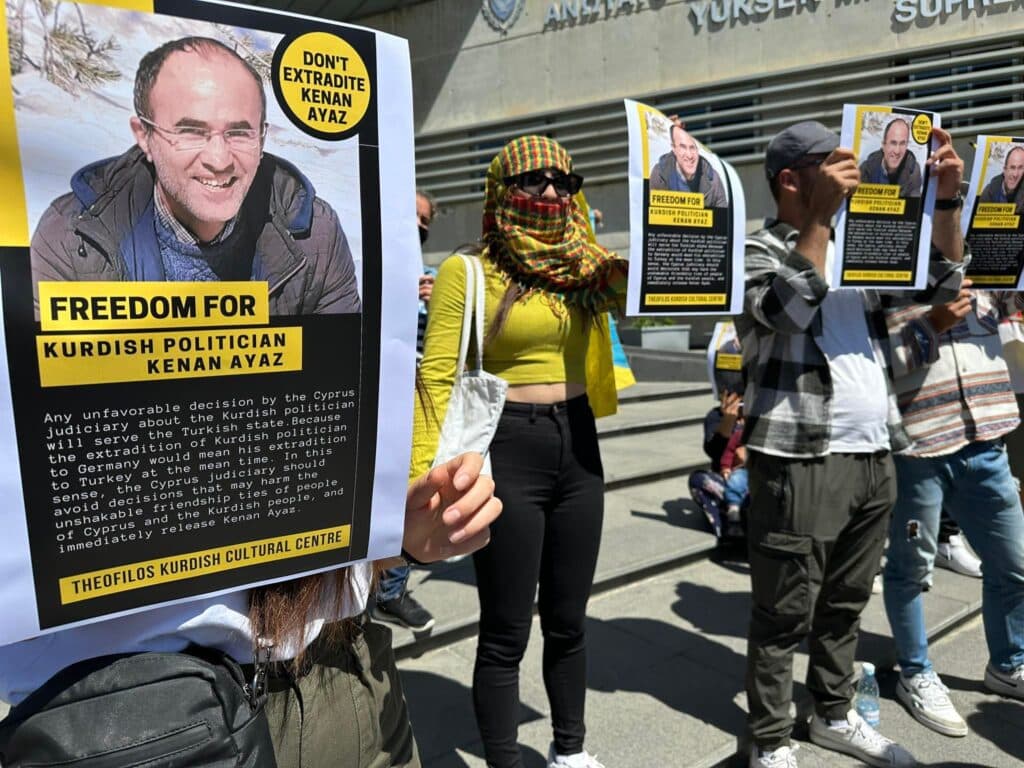The Larnaca district court will in the coming days make a ruling to decide whether Kenan Ayaz, who was convicted last year of being a member of a proscribed terrorist organisation after being extradited from Cyprus to Germany, will serve the remainder of his sentence in Cyprus, justice ministry sources said on Sunday.
Speaking to the Cyprus Mail, the sources explained that the German authorities had sent to their Cypriot counterparts the requisite paperwork for Ayaz’s conviction to be recognised and spent in Cyprus, thus paving the way for him to return to the island.
Once the paperwork had been received by the justice ministry, they said, “it was immediately forwarded on to the Larnaca district court, which now has the case before it and will rule in due course over whether he will serve his sentence in Cyprus”.
Meanwhile, the observatory following the case congratulated Justice Minister Marios Hartsiotis on the matter, saying that “the determination he showed to move quickly at this stage demonstrates his clear will to complete the process and ensure the immediate return of Kenan Ayaz to Cyprus”.
It also called on the judiciary to “do its duty”, and added that Cyprus’ courts “have a duty to defend the rights and freedom of a political refugee who found asylum and protection on its territory”.
Ayaz had been sentenced to four and a half years in prison last year after having been convicted of being a member of a “foreign terrorist organisation”, namely the Kurdish Workers’ Party (PKK).
He had initially been jailed in Turkey in 1993, before later being acquitted. He was then indicted again in Turkey in 2010, before travelling to Cyprus, where he was granted refugee status.
German authorities then issued a European arrest warrant in his name, and he was then extradited in 2023.
The PKK is a proscribed terrorist organisation in Turkey, the European Union, the United States, and the United Kingdom, among other countries.
It had launched its insurgency in 1984 with the initial aim of creating an independent Kurdish state. In total, more than 40,000 people have been killed in the conflict, before announcing its dissolution in May.
That dissolution came off the back of months of rapprochement efforts on the part of Turkish President Recep Tayyip Erdogan, political party MHP leader Devlet Bahceli, and the PKK’s jailed leader Abdullah Ocalan, who had called on the group to lay down its arms in February.
Turkish Foreign Minister Hakan Fidan described the group’s decision to dissolve as “historic and significant, particularly in terms of achieving lasting peace and stability in our region”.
United Nations Secretary-General Antonio Guterres, meanwhile, also welcomed the move, with his spokesman Stephane Dujarric saying that “this decision, if implemented, represents another important step towards the peaceful resolution of a longstanding conflict”.






Click here to change your cookie preferences